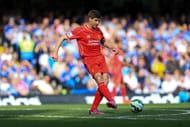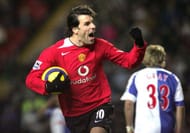With hundreds of millions of people watching football games every day, worldwide, football is easily the most-followed game on the planet, bar none. A wide spectrum of people fall under this range, including an ultra-nerdy segment that uses up a considerable amount of time in following televised games, reading sports magazines and forming opinions on world football.
This segment of fans is most active on social media, which is a convenient platform to obtain all relevant and interesting news. Often, they end up in heated debates, comment wars on social media and animated discussions about the game while hanging out with fellow fans. They have opinions on a wide range of footballing topics and are willing to express them freely.
Like any other similar critic community, however, many of these fans use flawed, meaningless and inaccurate argumentation during these discussions. The following is a list of 10 such common mistakes in criticism that they make.
1) We have more fans than you, therefore we are a better club than you
It is tough enough to define what makes a club good, without having to debate needlessly with another football fan whether the club one supports is better than some other club. Especially, just because one of them happens to have more fans.
It is a situational argument and does not always hold true. Any club’s real fanbase – the one that it mainly panders to, belongs to its locality. Therefore, it is the behaviour of these fans, who flock to the club’s home and away games, travelling with the team, which really defines the spirit of the club. Because they make the real difference to the club by helping to create atmospheres at home games.
The presence of the other fans worldwide is only felt when these teams are touring in preseason, raking in all the money from covering new markets. Otherwise, all that their involvement with the team amounts to is on social media and the once-in-a-lifetime trip to visit the club stadium for a home game.
Therefore, it cannot definitely be judged whether X club is better than Y on any logical scale, based on the number of fans it has worldwide.
2) We have more youth academy products than you, therefore we are better mentors than you

Youth team footballers have to acquire a certain level of proficiency at various skills specifically useful for the game, in order to be able to make the jump to the professional level and stay there. Most of the biggest clubs in the world have youth systems which take in youngsters at tender, pre-teen ages and train them for several years in order to prepare them for the professional game.
Whether any player is able to market himself well enough by performing in specific trials is then dependent upon the opportunities provided to him. Most youth footballers learn the game for up to 3-4 of their most important years under the same coaches. If the club’s senior team does not require players trained under this coach’s tactics, players often lose out on the opportunity to graduate from the reserve team to the main squad.
But that does not make the youth system of one club inferior to that of another because the main squad is governed by a different setup independent of the youth setup. Often, players have found success in other clubs, although most of them are then doomed to play in the lower leagues. All of these opportunities are governed by luck, so it would be incorrect to link youth team mentorship to the number of graduating players.
3) I support A Club because of X Player
Football clubs are much more than an individual player, and it is very illogical for one’s support for the club to hinge on just one player, who will not play at the club forever. Eventually, he would either retire or move on to another club – which club would you support after that?
And if you change allegiances after this player is gone, you have failed to grasp the idea that a football club is a group entity, which would be a big failing on your part. Therefore, one should not base one’s support to a club just because of one player.
4) X Player is better than Y Player because he has more trophies
Title triumphs always involve a significant amount of good fortune for the triumphant team. Without good luck, no player will ever be able to beat the odds on a regular basis, and will eventually be consigned to the gloom of defeat.
Cristiano Ronaldo posted a total of 61 goals and 22 assists in the 2014-15 season for Real Madrid, and yet, he had no trophy to show for his efforts at the end of the season. That does not, though, make him an inferior player to Thomas Muller, who won the Bundesliga with Bayern in the same season, aggregating 21 goals and 14 assists.
5) Your club does not have the class of my club because yours is newly successful
This is one of the most common taunts that supporters of old and well-established clubs throw at newly successful clubs. The recent rivalry between the two big Manchester clubs is a case in point – apparently, despite having a wonderful youth system, a great management team at all levels and a modern, well-constructed stadium, Manchester City is still perceived by Manchester United fans to lack class.
Class is not something that one builds over time – the phrase for that is legacy. United fans would be correct in saying that Manchester United has an unmatched legacy in British football, but that does not make them classier.
6) The only thing that matters in the transfer market is who offers the most money
Time and again, this argument has been proved wrong. Players like Francesco Totti, Alessandro del Piero and Steven Gerrard – among others – have turned down moves to better squads, more glamorous clubs and higher paychecks in order to keep playing in the cities they loved.
Players have also refused to move to bigger clubs because they want to create their own legacy at their current club – Jamie Vardy is a case in point from the previous transfer window.
Many times, the club in question also makes it impossible for the player to leave, because he is too valuable to their setup. On occasion, clubs have also consented to make the deal, following which the player decides not to leave for bigger bucks – Frank Lampard accepted a pay cut for the final year of his Chelsea career just to be able to play at his beloved club for one more year despite having the option to leave.
7) You cannot compare a defensive midfielder with a box-to-box midfielder
Although both of these roles are quite specific in nature, they require different skill sets to execute perfectly and are basically quite different from each other, it is too much of a stretch to say that these differences are enough to make defensive midfielders incomparable to box-to-box midfielders.
At the end of the day, both of these roles require players to play centrally in the middle third of the pitch. In both attack and defence, both of these roles are quite similar and executing them well requires virtually identical amounts of endurance, agility, speed and technique. There are many more similarities in these roles than there are differences. Bad debaters magnify these differences in order to prove their points.
Therefore, it is incorrect to say, for example, that Sergio Busquets is not comparable to Arturo Vidal when both of them occupy virtually the same spaces for most periods of the match and take the same actions.
8) Tap-ins are easy goals to score
This notion arises out of clear ignorance about the importance of off-the-ball work in football. Most fans do not take the trouble of observing the runs and movements that players make off the ball in order to receive the ball. A segment of these fans proceeds to then proclaim that just because the act of putting the ball in the net was not technically tough enough, it was an easy goal for the scorer.
The amount of training required by strikers to learn how to time their runs, beat their markers, receive the ball neatly and then place it properly is immense – it takes years to perfect this and become good enough to poach goals against fellow professionals.
It is this training that makes strikers the most dangerous players on the pitch and separates them from traditional wide forwards and playmakers.
Therefore, the next time you see a striker passing the ball past a helpless goalkeeper, do not forget to check the replays for how he got in position so that he could get to the right place at the right time.
9) Goalkeepers from big clubs have it easier than those from small clubs
Goalkeepers are generally not given enough credit when any team wins a title. Part of the reason behind this is that people assume that the defence made his life easier through the length of the competition – very rarely does a team with a fragile defence win trophies.
Most of the credit for keeping the scoreline in check goes to the defenders because they are more actively involved in keeping the ball out of danger areas.
Yet, the goalkeepers in these teams are no less involved than those from smaller clubs, who are forced to make more saves and be more proactive. Ultimately, the job of a goalkeeper is to keep out every ball from the back of the net, and to do so, he has to concentrate for the entire length of the game and react accordingly. Just because one goalkeeper is more of a busy body than another, he does not automatically have a tougher job.
Another argument brought up is the fact that goalkeepers from bigger clubs have better defenders playing in front of them and thus have less work to do. That is a futile statement, to say the least, Petr Cech and Gianluigi Buffon constantly are in constant communication with their defenders to ensure everything is in order and to keep a check on the opposition as well.
Professional goalkeepers make hundreds of saves from every possible angle in training. When they are out on the pitch, saving a shot comes about as naturally to them as walking, because they are fully concentrated at every moment in the match – all they need to do while making saves is react timely and keep the ball away from their opponents.
10) X (a fullback) is better than Y (another fullback) just because he is better in attack
The biggest change in modern football has been the evolution of the role of fullbacks. With players getting fitter, faster and sturdier in all positions, these days, fullbacks are pushed forward on nearly every attack to provide more options to the midfielders and forwards. It is now a common sight in football to find a fullback running into the penalty area, delivering crosses and even taking shots on goal.
Yet, the primary role of a fullback is still to defend his goal in the maximum number of game situations to the best of his ability. Unless a fullback is able to fulfill his defensive duties, keep opponent wingers in check and track strikers’ runs, he is still not qualified enough to join in with his team’s attacks.
If necessary, he has to curb his attacking instincts, refuse to join attacks and keep the defensive shape of his team proper.
The role that fullbacks play in attack is auxiliary. The only time that the argument in question would be valid is when both X and Y are almost as good as each other in defence. If X is even slightly less disciplined than Y in defence, his extra utility to the team in attack does not make him a better fullback – many more goals may be conceded by the team due to a fullback’s positional indiscipline than they can hope for him to create in attack.








